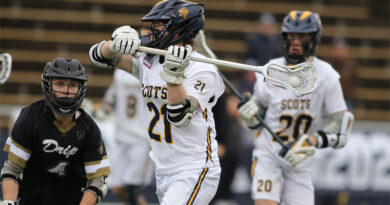Banking Customers, Someone Could Be Watching You
 Bill Elliott can almost laugh now about burglars who smashed his car window months ago and made off with an envelope of money he had just gotten from his bank.
Bill Elliott can almost laugh now about burglars who smashed his car window months ago and made off with an envelope of money he had just gotten from his bank.
“What they stole were Euros,” he said. “I was trying to imagine them driving away, imagining they had a big fat envelope of currency, and it’s Euros.”
Elliott, a Dallas attorney, was preparing for a fall trip when he picked up the Euros from Frost Bank in Preston Center, then drove about 200 yards to exchange a piece of luggage at Bag’N Baggage in the Plaza at Preston Center.
“I wasn’t in there three or four minutes,” said Elliott, who turned just in time to see a vehicle next to his driving away.
Police have a word for what happened to Elliott – jugging, a term Dallas police said may refer to the tool used to make small holes in the tires of intended victims. Use of the term has expanded to cover any caper where crooks watch customers leaving banks and follow those carrying money bags or envelopes. The plan: to commit robbery or burglary.
Officers in Dallas, Highland Park, and University Park have all worked jugging cases.
The Dallas Police Department couldn’t provide statistics for how often such crimes happen, but officers noted that these crimes of opportunity often happen in suburbs.
The handful of cases in the Park Cities were all burglaries, not robberies, and involved victims being followed from Dallas banks, officials said.
“That’s a five-second offense,” said Lt. Lance Koppa of the Highland Park Department of Public Safety. “It doesn’t take long to smash the glass and grab something from the car.”
In a couple of cases, construction workers with large quantities of cash were followed to job sites.
[pullquote-left]“It’s a crime we need to be mindful of, and it can happen anywhere.” -Lt. Lance Koppa[/pullquote-left]
“It’s a crime we need to be mindful of, and it can happen anywhere,” Koppa said.
Some think jugging may have originated in Houston, according to KVVU-TV, a Las Vegas Fox affiliate. The station last year quoted officers in Henderson, Nevada as describing Texas’ largest city as the “jugging capitol of the world.”
In late February, U.S. Attorney Erin Nealy Cox of the Northern District of Texas announced federal indictments and arrests of nine Houston residents accused in eight violent jugging robberies in North Texas. The FBI is investigating the cases with assistance from Dallas, Garland, Irving, and Richardson police.
Those arrests didn’t end the threat in north Dallas. Highland Park DPS in March reported a case, where burglars broke into a Chase Bank customer’s 2014 Chevrolet Corvette and took $800, while the owner shopped at Whole Foods.
Elliott said his experience has made him more watchful, especially when he drives by his bank. “I always turn to the right to see if there are a bunch of guys in a car.”
He also watches for older cars with dealer plates, because he learned from the officer who responded to his report that crooks often put expired dealer plates on their getaway vehicles.
“What really scared me is the cop saying, ‘They will follow you home,’” Elliott said. “If they think you are coming out of the bank with cash, they will follow you home. That’s really bad.”
Protect Yourself
• Always be aware of your surroundings.
• Conceal money before leaving the bank. Never openly carry bank bags, envelopes, or coin boxes.
• Use a bag of some sort such as a duffle bag, tote bag, backpack, or purse.
• Be aware of anyone following you from the area of a bank.
• If you suspect you are being targeted, call 911 from your cell phone and keep the dispatcher informed of your location, the direction you are traveling, and drive toward the police station until marked police cars are able to locate you.
• Do not leave or try to hide your bank bag or bank envelope in your vehicle when you exit at your next destination, even if it’s your residence or business.
Suspicious Activity
• Occupied vehicles backed into parking spaces with clear view of the front doors of the bank, ATM, or commercial drive-thru line.
• Vehicles arriving at the bank with no occupants entering the bank.
• Vehicles changing parking spaces.
• Vehicles with dark tinted windows with little or no visibility of the occupants.
• Vehicles with multiple occupants.
Source: Dallas Police Department, dpdbeat.com








